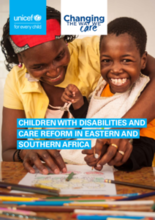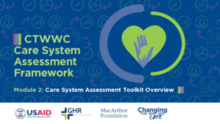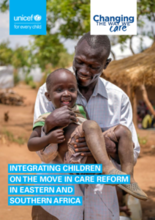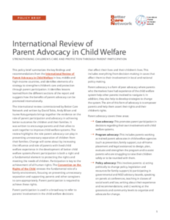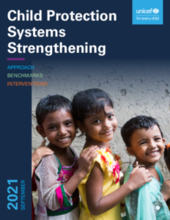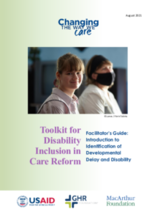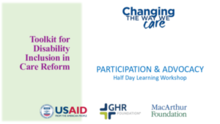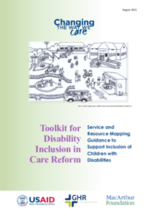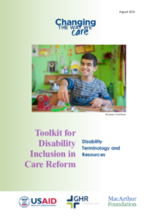Displaying 231 - 240 of 1028
This paper highlights the importance of placing support for children with disabilities and their families at the centre of care reform efforts, and provides examples from across the region of how this can be done.
Brief introduction to the assessment framework, guidance document, training modules, background, and method.
This toolkit includes guidance for implementing the care system assessment, the assessment framework itself, and corresponding training materials. Together, this guidance document, the framework and training resources are intended to support stakeholders to plan and conduct an assessment, use assessment results to develop a national strategy and, over time, monitor progress in strengthening national care systems.
This short paper examines why children on the move need to be included in care reform in the region, how the care needs of these boys and girls can be met, and what lessons can be learned from the care of children on the move to inform the care of children more broadly.
This policy brief summarizes the key findings and recommendations from the International Review of Parent Advocacy in Child Welfare in low, middle and high-income countries, and identifies elements of a strategy to strengthen children’s care and protection through parent participation.
Guided by UNICEF’s Child Protection Strategy (2021 – 2030) which provides the overarching strategic framework for UNICEF’s child protection programming globally, the paper discusses key considerations that have shaped this approach.
This facilitator’s guide accompanies the workshop slides by the same title, 'Introduction to the Identification of Developmental Delay and Disability' as part of the Toolkit for Disability Inclusion in Care Reform. It is designed to be used by the person providing the workshop.
This is a presentation for a half-day workshop on participation and self-advocacy approaches for working with children with disabilities and their families; includes slides, facilitation notes and a sample list of country-specific disability rights.
This guidance specifically refers to mapping of services as the process of locating and sharing information to a wide range of people about available services to support children with disabilities and their families.
The terminology and tips that follow may help as you use the Toolkit for Disability Inclusion in Care Reform and apply its principles to your program activities. It is recommended that you become familiar with these terms before reading the rest of the content and revisit as needed. Please keep in mind that disability is an evolving concept. Language that is preferred in one context may be different in another. Ask local organizations of persons with disabilities (OPDs) for the preferred terms in your language and country text.

